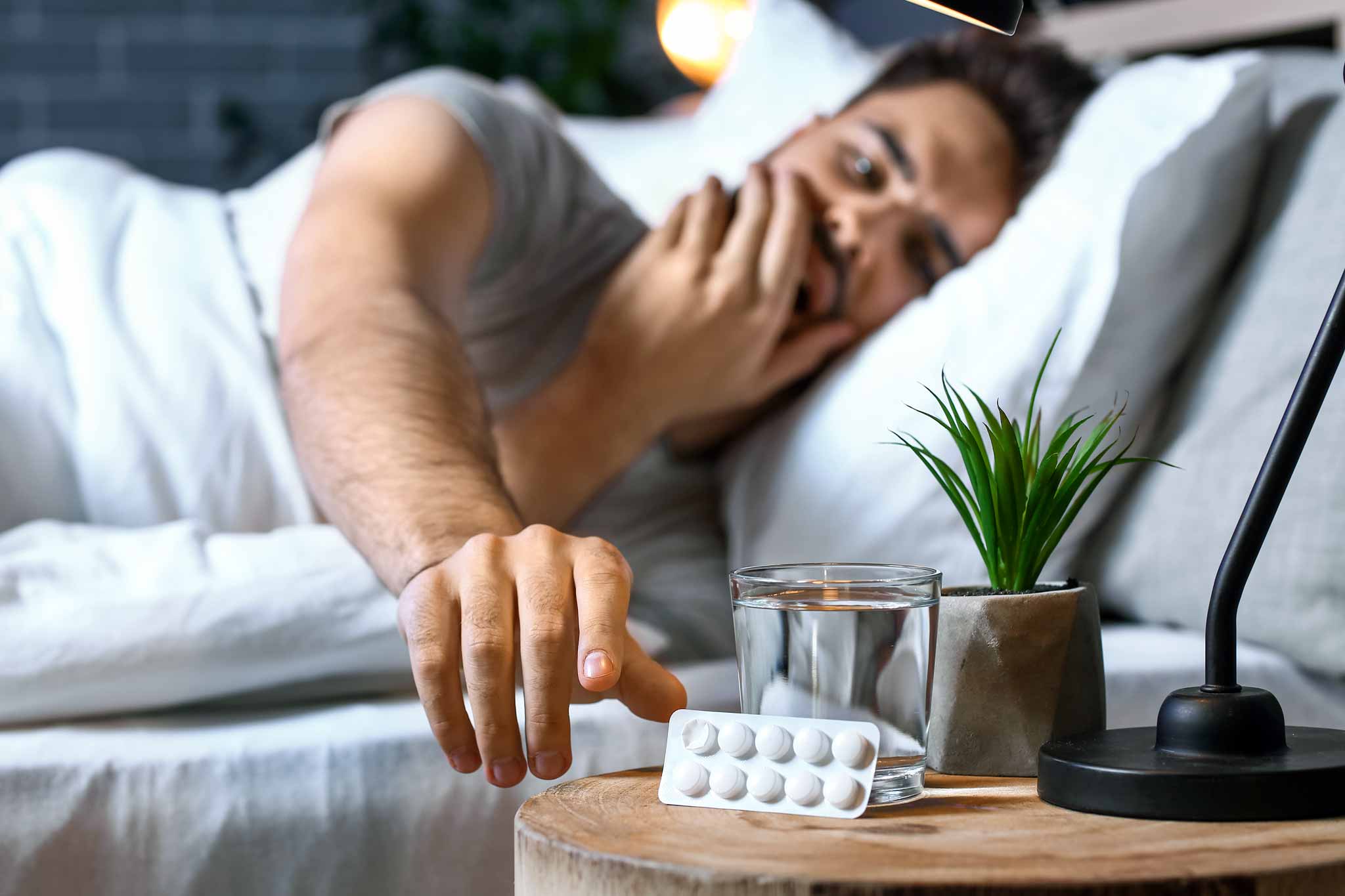For those struggling with insomnia, sleeping pills can be life-changing. However, other people who use sleeping pills may develop an addiction and need help to recover.
How Sleeping Pills Work
A person who becomes addicted to sleeping pills may not recognize what’s happening because they believe this type of medication is safe. Sleeping pills are classified as sedative-hypnotics used to help people who have insomnia and other sleep disorders. Sleeping pills work by affecting the part of the brain that deals with focusing and relaxing. They are similar to benzodiazepines, and both types of drugs are potentially quite addictive.
A person might be prescribed sleeping pills to address difficulty sleeping that arises from a stressful situation or the development of an anxiety disorder or other mental health issues. People with unusual circadian rhythms often use sleeping pills, as do individuals who travel a lot or need to sleep unusual hours, such as daytime sleepers. Sleeping pills are meant to be used short-term only, rather than as a long-term or permanent way for a person to get enough rest.
The High Risk of Becoming Addicted to Sleeping Pills
Time magazine reports that 9 million American adults take some kind of sleep aid, which equates to 4% of the U.S. adult population. This startling statistic points out just how many people rely on sleeping aids. In 2019, the Food and Drug Administration (FDA) mandated that black-box warnings be placed on the packaging for several sedative-hypnotics in order to highlight their “serious and life-threatening risks”.
While under the influence of sleeping pills, particularly when a person has consumed a dangerous amount, they may sustain injuries or even death from falling, drowning, carbon monoxide poisoning, hypothermia, accidental overdoses, and car accidents. Some people attempt or commit suicide while under the influence of a dangerous amount of sleeping pills.
Popular Sleeping Pills
Three of the most popular sleeping pills are Lunesta, Ambien, and Sonata. These medications are available by prescription only, and each has the potential to become addictive. These pills are meant to be taken orally, but some people who have become addicted to sleeping pills may crush them in order to snort them and increase their effectiveness.
Medical professionals often prescribe anti-depressants and anti-anxiety medications in part due to their ability to help a patient sleep. For many who takes these types of medications, they may have difficulty realizing an addition has developed because they believe these drugs are harmless.
Many people avoid prescription medications and use over-the-counter (OTC) products to address their difficulty sleeping. OTC drugs can also become addictive and have their own list of potentially dangerous side effects, particularly when an individual abuses them.
Common Side Effects From Taking Sleeping Pills
Whether a person uses sleeping pills as directed or becomes addicted, many side effects are possible while taking them. These side effects include:
- Headache
- Constipation
- Diarrhea
- Dry mouth
- Feeling lightheaded or dizzy
- Memory loss
- Unusual dreams
- Weight loss or gain
- Changes in appetite
Signs of Addiction to Sleeping Pills
Often a person becomes addicted to a substance slowly and doesn’t realize they have developed a problem. Here are signs that a person may have become addicted to sleeping pills:
- Needing the pill to sleep every night
- Needing higher doses in order to get the same effect
- Slurred speech
- Memory loss
- Difficulty focusing
- Difficulty walking and performing simple tasks
- Using the pills for effects other than to sleep, such as feeling high
- Increasing the dosage without talking to a doctor first
- Doctor shopping (visiting multiple doctors to get several prescriptions)
- Experiencing withdrawal symptoms when out of the medication
Natural Ways to Sleep Better
If you or a loved one has become addicted to sleeping pills, it may seem like there are no other options. However, there are many natural ways to address insomnia and sleep disruptions that don’t rely on prescription or over-the-counter medications. Often anxiety and depression contribute to a person’s difficulty sleeping. Addressing these issues in therapy with a licensed counselor can significnalty help.
How a person spends their time just prior to going to bed can have a major impact on their ability to fall and stay asleep. Many experts recommend stopping the use of any screen or technology time at least half an hour before trying to sleep. This includes cell phones, computers, televisions, and video games. Blue light emitted by items like cell phones can suppress melatonin in a person, contributing to problems sleeping.
Developing a consistent sleep-wake schedule Monday through Sunday can also help. Before turning out the light at night, engage in relaxing activities, such as reading, listening to calming music, or journaling. This helps empty the mind of the clutter that can consume a person’s thoughts as they try to sleep. Having comfortable bedding, a quiet room, and a comfortable indoor climate also contributes to healthier sleeping patterns.
Sleeping Pill Addiction Treatment in Los Angeles
Clear Behavioral Health offers treatment for substance and alcohol abuse that changes people’s lives permanently. We offer detoxification, residential treatment, and outpatient programs designed to help you or someone you love heal from addiction and manage any co-occurring mental health problems.
If you are ready to face your addiction to sleeping pills, we are ready to help. Contact Clear Behavioral Health today and get started on healing.
